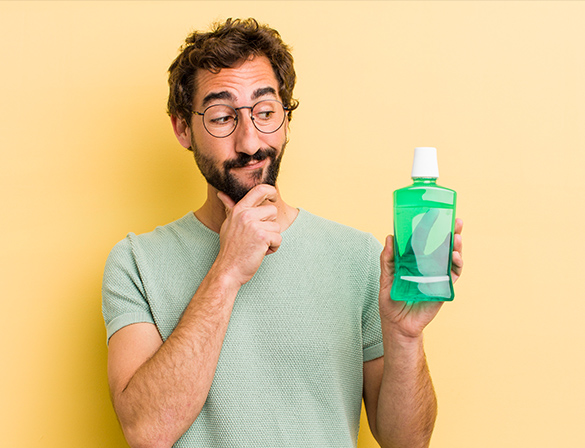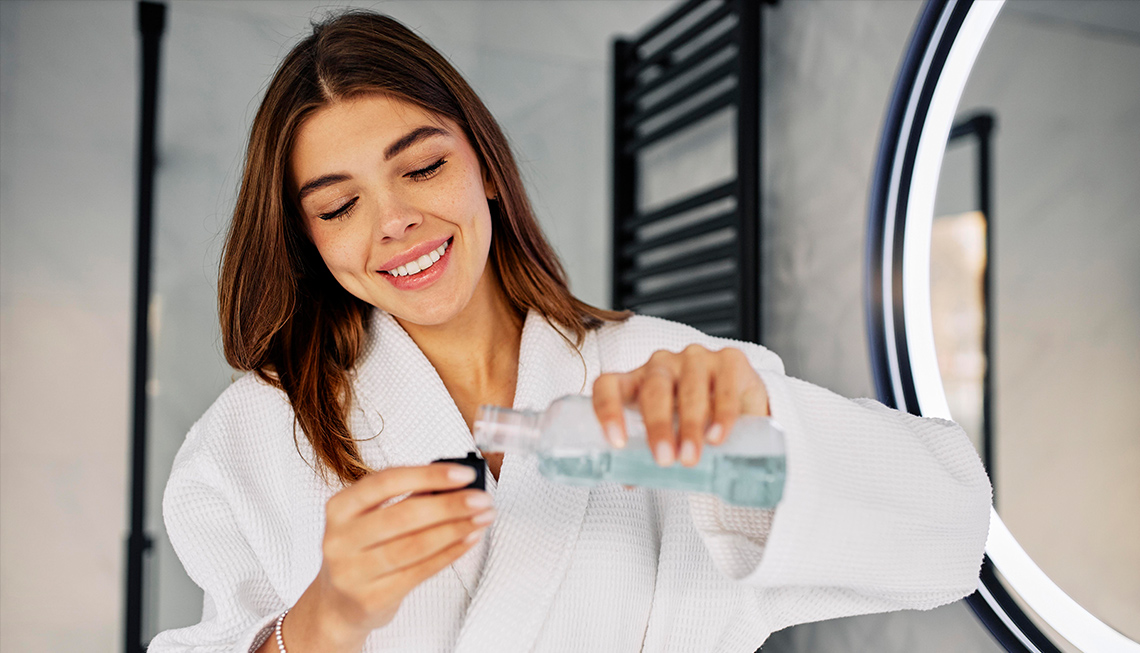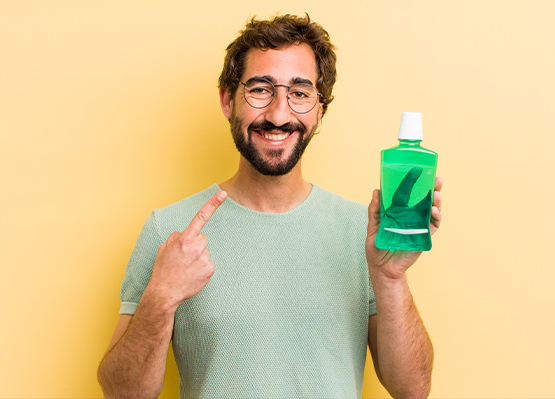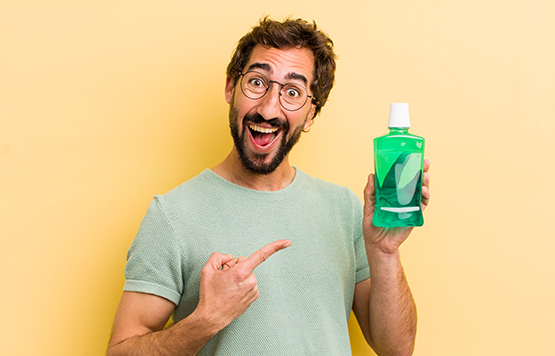Mouthwash
Over the Counter and Rx

Mouthwash
Over the Counter and Rx
Mouthwash can complement your daily oral hygiene routine. While it is no substitute for brushing and flossing your teeth, mouthwash can help you reach areas your toothbrush might miss.
Thus, there are two basic types of mouthwashes, cosmetic and therapeutic. Hence, you can buy many of these products over the counter, but some require a prescription.
In addition, you should note that mouthwashes contain different ingredients. What are they and how can they help you keep your mouth fresh and healthy? What mouthwash is best for you? In any case, here we will answer these questions and more.
Common Oral Conditions
In general, before you dive into the details of mouthwash, you should know the basics of common oral conditions. Most important, this information can help you zero in on what mouthwash may be best for you.
Bad breath
If your breath smells or tastes unpleasant, then you have bad breath. Specifically, this condition is typically not serious. On the whole, it is often caused by eating certain foods or lackluster oral hygiene.
Gingivitis
This gum disease causes inflamed gums around the teeth. Thus, gingivitis can cause tooth loss if it goes untreated.
Plaque
Plaque is a sticky film that contains bacteria. That is to say, once it coats teeth, it can lead to tooth decay or loss, receding gums, or bad breath.
Tooth decay
Tooth decay, commonly referred to as cavities, is a tooth’s permanent damage. To explain, this usually consists of small holes. To emphasize, tooth decay can lead to root canal therapy or tooth removal.
Mouthwash: 2 Basic Types

Cosmetic Mouthwashes
Cosmetic mouthwashes typically only reduce bad breath. Thus, they have minimal oral health benefits. With this in mind, they are available over the counter.
Therapeutic Mouthwashes
Therapeutic mouthwashes can help you manage plaque, gingivitis, bad breath, and tooth decay. What’s more, depending on their ingredients and strengths, you can buy them over-the-counter or by prescription.
Common Therapeutic Mouthwash Ingredients
Alcohol
Perhaps the most common ingredient in any mouthwash, alcohol can destroy bacteria and carry other active ingredients to help cut into plaque. That is, alcohol-containing and alcohol-free mouthwashes are readily available in stores.
Benzydamine
Benzydamine mouthwashes are typically used to relieve pain and reduce inflammation. In particular, you can buy these rinses over-the-counter and via prescription.
Cetylpyridinium chloride
This compound can reduce gingivitis and bad breath as well as prevent dental plaque. Thus, it is used in some types of mouthwash, toothpaste, and mouth spray. Rinses containing cetylpyridinium chloride can rarely stain teeth. In most instances, you do not need a prescription to get a mouthwash with this ingredient.
Chlorhexidine
This antiseptic antibacterial agent can help control plaque and gingivitis. Also, it can reduce gum swelling and bleeding. As a result, mouthwashes with chlorhexidine are only available by prescription.
Essential oils
Mouthwashes containing essential oils can help control plaque and gingivitis. All in all, various oils like clove, peppermint, and spearmint can be found in these more natural options. As can be seen, some brands have eucalyptol, menthol, methyl salicylate, and thymol. Thus, these mouthwashes are usually available over the counter.
Fluoride
Peroxide
Stannous chloride
Zinc
What Mouthwash Should You Use?
The best mouthwash for you depends on your unique smile. You may be able to get by with an over-the-counter mouthwash. On the other hand, prescription wash might be the most effective option for you. The specific ingredients to look for also depend on your unique oral health needs.
Consulting with your dentist at Family Dentistry Springfield can get the mouthwash you need to maintain your oral hygiene. Tell your dentist if you experience any pain or discomfort. Our experienced dental team at Family Dentistry Springfield can suggest a treatment plan that could include a mouthwash that contains any of the previously mentioned ingredients. You do not have to guess about what rinse to choose. Your dentist can remove all doubt and set your mind at ease.


Mouthwash and Oral Health Advice in Springfield, VA
One oral condition can lead to another. The best defense is a great offense. A proper oral hygiene routine that includes mouthwash can help you fight many conditions that can destroy your smile. Finally, schedule an appointment with Dr. Asgari at Family Dentistry Springfield to find the right one for you.